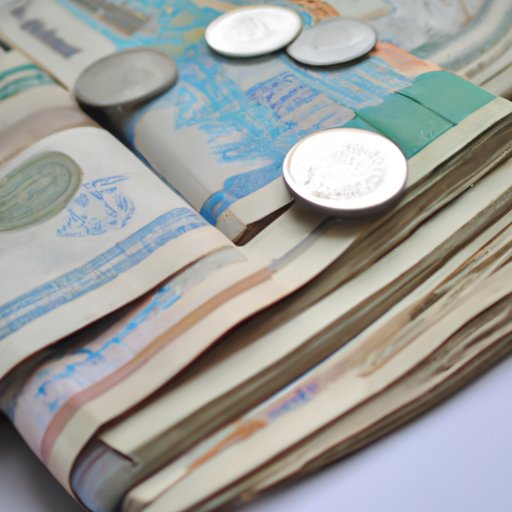
What is a Function of Money
Money is an essential resource in our daily lives, but have you ever stopped to think about its role in society and the economy? Understanding the function of money can help us make better decisions, plan for the future, and navigate economic challenges. In this article, we’ll explore the different functions of money, its evolution over time, and why it matters.
Understanding the Function of Money: A Comprehensive Guide
At its core, money is simply a medium of exchange that facilitates transactions. Money can take many forms, from physical currency and coins to digital tokens and bank deposits. The purpose of money is to make it easier for people to acquire goods and services by providing a common unit of value that can be exchanged for those goods and services.
Why is money so important? Money allows us to conduct trade and commerce more efficiently and can help allocate resources more effectively. Without money, we would need to engage in barter, exchanging goods and services directly, which can be inefficient and complex. Money simplifies the process of exchange and allows us to specialize in a particular area of production or trade and earn income which can then be used to acquire goods and services.
There are several different types of money, including commodity money, fiat money, and digital money. Commodity money is any physical object that has value in and of itself, such as gold or silver. Fiat money, on the other hand, has no intrinsic value but is declared legal tender by a government. Lastly, digital money refers to cryptocurrency and other digital tokens that can be exchanged for goods and services and are managed independently of any government or central authority.

The Many Roles of Money: Exploring its Functions
While money’s primary purpose is to facilitate transactions, it also serves several other essential functions. First, money acts as a unit of account, meaning it provides a numerical value that can be used to compare the value of goods and services. Money makes it possible to calculate costs, profits, and losses objectively. Secondly, money serves as a store of value, allowing us to save money for future use. By storing value in money, we can avoid the risk of losing value due to inflation or other economic factors.
Why Money Matters: The Key Functions You Need to Know
The importance of money goes beyond simple transactions and financial management. Money plays a critical role in trade and commerce by facilitating economic growth and reducing transaction costs. When money is used effectively, it can help fuel economic development by allowing businesses to expand and invest in new markets. By reducing transaction costs, money can help ensure that goods and services can be acquired quickly and at a reasonable cost, enhancing economic efficiency.
Money 101: The Essential Functions of Currency
When we think of money, we often picture physical currency, but there are many different kinds of money that can affect how transactions occur and how the economy functions. Understanding the different types of money can help us make more informed decisions about spending and saving. Currency is a form of money that is widely recognized as a medium of exchange and is backed by some central authority, such as a government. Currency is generally durable, portable, divisible, and easy to store, making it an effective form of money.
From Bartering to Banking: The Evolution of the Functions of Money
Money has evolved significantly over time, changing from bartering and commodity money systems to sophisticated modern banking and finance systems. Historically, humans have used various objects as a medium of exchange, from seashells to beads and silver. Over time, commodity currencies such as gold and silver were used to represent value, and claims on those commodities were eventually used as currency. With the rise of banking and finance, money has taken on new forms and functions, including electronic money, digital tokens, and cryptocurrencies.
A Closer Look at the 3 Primary Functions of Money and How They Impact Our Economy
When we analyze money’s impact on the economy, we can identify three primary functions: medium of exchange, store of value, and unit of account. As a medium of exchange, money allows for efficient trade and commerce, reducing transaction costs and enhancing economic efficiency. As a store of value, money enables savings and investment, bolstering economic development. Finally, as a unit of account, money provides a common value system that businesses and individuals use to compare the value of goods and services, further enhancing economic stability and efficiency.
Conclusion
Understanding the function of money is essential for anyone interested in financial management, trade, and commerce, or economics. Money serves as a medium of exchange, unit of account, and store of value and plays a crucial role in fueling economic growth and development. By exploring the different types of money, how currencies work, and the evolution of money over time, we can gain a deeper understanding of its role in society. With this knowledge, we can make smarter financial decisions and work to promote economic stability and growth.
If you want to learn more about the functions of money, there are many resources available, including financial news websites, economics blogs, and educational resources from reputable sources. By staying informed about the latest developments in the world of finance and economics, we can ensure that we are making the most of our money and contributing to a strong, stable economy.





